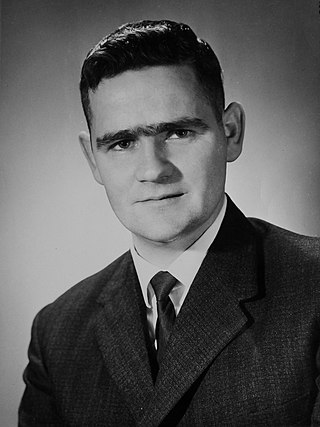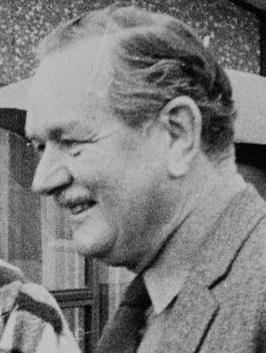Related Research Articles
A royal commission is a major ad-hoc formal public inquiry into a defined issue in some monarchies. They have been held in the United Kingdom, Australia, Canada, New Zealand, Norway, Malaysia, Mauritius and Saudi Arabia. A royal commission is similar in function to a commission of inquiry found in other countries such as Ireland, South Africa, and Hong Kong. It has considerable powers, generally greater even than those of a judge but restricted to the terms of reference of the commission. These powers include subpoenaing witnesses, taking evidence under oath and requesting documents.
Abortion in New Zealand is available within the framework of the Abortion Legislation Act 2020, which entirely eliminated the criminal status of abortion and allows termination on request during the first 20 weeks of pregnancy. After 20 weeks abortion is permitted only if a health practitioner deems it "clinically appropriate" and consults at least one other health practitioner. However, the law does not specify what the conditions are which constitute "clinically appropriate", and there are no criminal penalties. Abortion is illegal only if a person who is not a licensed health practitioner procures or performs it.
The Christian Democrat Party of New Zealand was a Christian socially conservative political party established in 1995. It contested the 1996 general election as part of the Christian Coalition with the Christian Heritage Party.

Gordon Frank Copeland was a New Zealand politician who served as a Member of Parliament from 2002 to 2008. He entered the House of Representatives as a list MP for the United Future New Zealand Party from 2002 but he resigned from the party in 2007. In March 2009, Copeland became Party President of The Kiwi Party, which he had co-founded with another former United Future list MP, Larry Baldock, in May 2007. Copeland stood for the Conservative Party in the 2011 New Zealand general election. Prior to entering Parliament he held a number of corporate positions before working as the financial administrator for the Roman Catholic Archdiocese of Wellington.

The Abortion Law Reform Association of New Zealand (ALRANZ) is New Zealand's national abortion-rights advocacy group in existence since 1971. Since the decriminalisation of abortion in 2020, the organisation continues to monitor and lobby for changes to the law. The organisation is based in Wellington, publishes a quarterly newsletter, and has its own web site.

Voice for Life, formerly known as the Society for the Protection of the Unborn Child (SPUC), is a New Zealand anti-abortion advocacy group. It has also lobbied against infanticide, embryonic stem cell research, cloning and euthanasia. In recent years, it has strongly campaigned against the decriminalisation of euthanasia in New Zealand as well as abortion, but was unsuccessful in preventing the decriminalisation of either in 2020.
Marilyn Valeria Pryor, DSG was a New Zealand conservative Catholic, and anti-abortion advocate who served on the Executive Council of Voice for Life, and served administrative roles for New Zealand's Thomas Stafford Williams. Since the 1990s she worked on, and in her latter years was the editor of, Wellington's Diocese Catholic Newspaper - WelCom. She held an admiration for Cardinal Joseph Bernadin.

Brian Peter MacDonell is a former New Zealand Member of Parliament for Dunedin Central in the South Island.

Air Commodore Thomas Francis Gill, was a New Zealand air force pilot and politician. He flew with the Royal Air Force throughout the Second World War and afterwards served with the Royal New Zealand Air Force until 1969. He entered Parliament as a National Party MP in 1969 and served as a cabinet minister from 1975 to 1980, when he resigned to become New Zealand's Ambassador to the United States.
Sir Ivor Lloyd Morgan Richardson was an eminent New Zealand and Commonwealth jurist and legal writer and a member of the Judicial Committee of the Privy Council.

Dame Margaret Clara Bazley is a New Zealand public servant. She began her career as a psychiatric nurse and rose through the ranks to senior leadership positions at psychiatric hospitals and district health boards. In 1978 she became the Director of Nursing at the Department of Health, the chief nursing position in New Zealand and at that time the most senior position in the public service held by a woman, and in 1984 became the first female State Services Commissioner. She subsequently held top positions at the Department of Transport and the Department of Social Welfare.

Contraception, Sterilisation, and Abortion Act 1977, also known as the CS&A Act 1977, is an Act of Parliament in New Zealand. It was passed shortly following an inquiry by the Royal Commission on Contraception, Sterilisation and Abortion. The legislation established the legal framework for abortion in New Zealand; with abortions being allowed provided the procedure was approved by two certifying consultants and that the circumstances met the criteria of the Crimes Act 1961. In March 2020, several of its provisions were amended by the Abortion Legislation Act 2020, which eased access to abortion and eliminated most of the criteria established by the Crimes Act 1961.
Scientific and medical expert bodies have repeatedly concluded that abortion poses no greater mental health risks than carrying an unintended pregnancy to term. Nevertheless, the relationship between induced abortion and mental health is an area of political controversy. In 2008, the American Psychological Association concluded after a review of available evidence that induced abortion did not increase the risk of mental-health problems. In 2011, the U.K. National Collaborating Centre for Mental Health similarly concluded that first-time abortion in the first trimester does not increase the risk of mental-health problems compared with bringing the pregnancy to term. In 2018, The National Academies of Sciences, Engineering, and Medicine concluded that abortion does not lead to depression, anxiety, or post-traumatic stress disorder. The U.K. Royal College of Obstetricians and Gynaecologists likewise summarized the evidence by finding that abortion did not increase the risk of mental-health problems compared to women carrying an unwanted pregnancy to term. Two studies conducted on the Danish population in 2011 and 2012 analysed the association between abortion and psychiatric admission found no increase in admissions after an abortion. The same study, in fact, found an increase in psychiatric admission after first child-birth. A 2008 systematic review of the medical literature on abortion and mental health found that high-quality studies consistently showed few or no mental-health consequences of abortion, while poor-quality studies were more likely to report negative consequences.

Dame Margaret June Sparrow is a New Zealand medical doctor, reproductive rights advocate, and author.
Contraceptive rights in New Zealand are extensive. There are many options available to women seeking contraception. There are also options for men. Government funding keeps the cost of most types of contraception low in most cases. Family planning options in New Zealand are generally in keeping with the United Nations stance towards sexual and reproductive rights although the country has received criticism in some aspects.

Jamie Ross Strange is a New Zealand politician. He is a Member of Parliament in the House of Representatives for the Labour Party.

Anahila Lose Kanongata'a is a New Zealand politician and Member of Parliament in the House of Representatives for the Labour Party.
The Women's Electoral Lobby (WEL) in New Zealand was a non-partisan feminist lobby organisation founded in 1975. From the 1970s to the 1990s it worked for greater participation of women in local and national politics. WEL educated and supported women to stand for election, lobbied and advocated for women, and monitored legislation and the media to make sure women's concerns were addressed. It supported the introduction of the proportional representation voting system in 1996 on the grounds that it would lead to greater representation of women in parliament.

The Abortion Legislation Act 2020 is an Act of Parliament in New Zealand allowing unrestricted access to abortion within the first 20 weeks of pregnancy, and repealing sections of the Crimes Act 1961 related to unlawful abortion. After the 20-week period, women seeking an abortion must consult a qualified health practitioner who will assess their physical health, mental health, and well-being. The Act also provides provisions for conscientious objection rights for medical practitioners and exempts abortion services from certain Crimes Act provisions, while extending the definition of health services to include abortion services under the Health and Disability Commissioner Act 1994.

The Contraception, Sterilisation, and Abortion Amendment Act 2022 is an Act of Parliament in New Zealand that will provide a regulation-making power to set up safe areas around specific abortion facilities on a case-by-case basis. The Bill passed its third reading on 16 March 2022 and received royal assent on 18 March.
References
- ↑ "Royal Commission on Contraception, Sterilisation and Abortion, 1976". Te Ara Encyclopedia of New Zealand. 15 November 2012. Retrieved 3 August 2013.